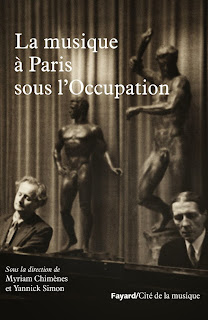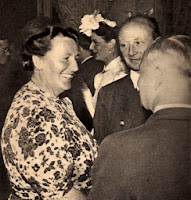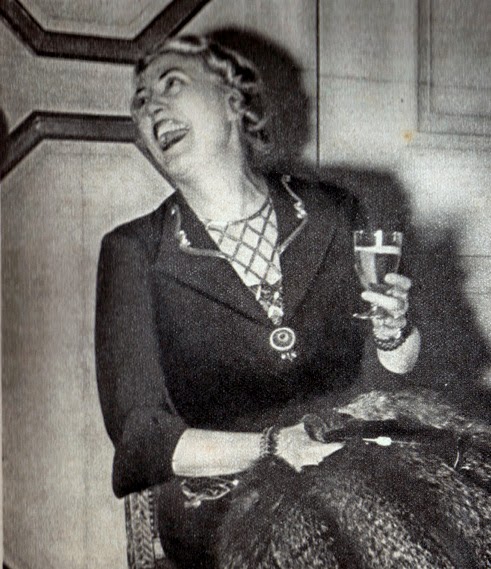 |
| Alfred Cortot and Wlhelm Kempff during the concert de clôture, Exposition Arno Breker Orangerie, 1 August 1942. Akademie der Künste, Berlin. |
But the impressive extent and depth of the research ("scientific research," the French would say), documentation, and analysis of musical life in occupied Paris that has taken place in the dozen years separating the two conferences took me by surprise: all the periodicals scoured cover-to-cover, hundreds of archives—the Radio, the embassies, the concert societies—plumbed, pictures and recordings galore.
Many of the twenty or so contributions were, to a greater or lesser degree, eyebrow raising, perhaps most notably Yves Balmer and Christopher Brent Murray's reconstruction of Messiaen's activities in 1941, correcting the composer's liberally decorated accounts of his imprisonment and repatriation (and, thus, the history of such works as Visions de l'Amen). And, to no one's surprise, the polemics over wartime behaviors are far from done: the cases of Florent Schmitt and Jacques Chailley, for instance, remain the focus of sometimes heated debate.
 | |
| Winifred Wagner at a reception at the German Embasssy, May 1941 La Semaine, 5 June 1941. |
 |
| Von Karajan and Rudolf Schleier, German Consult General, same party. |
 |
| Germaine Lubin, same party. |